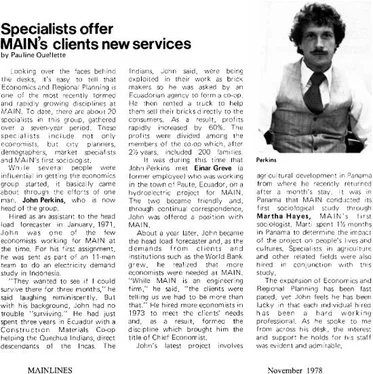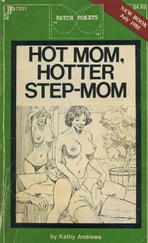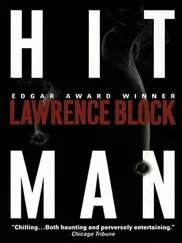John Perkins - Confessions of an Economic Hit Man
Здесь есть возможность читать онлайн «John Perkins - Confessions of an Economic Hit Man» весь текст электронной книги совершенно бесплатно (целиком полную версию без сокращений). В некоторых случаях можно слушать аудио, скачать через торрент в формате fb2 и присутствует краткое содержание. Жанр: economics, на английском языке. Описание произведения, (предисловие) а так же отзывы посетителей доступны на портале библиотеки ЛибКат.
- Название:Confessions of an Economic Hit Man
- Автор:
- Жанр:
- Год:неизвестен
- ISBN:нет данных
- Рейтинг книги:4 / 5. Голосов: 1
-
Избранное:Добавить в избранное
- Отзывы:
-
Ваша оценка:
- 80
- 1
- 2
- 3
- 4
- 5
Confessions of an Economic Hit Man: краткое содержание, описание и аннотация
Предлагаем к чтению аннотацию, описание, краткое содержание или предисловие (зависит от того, что написал сам автор книги «Confessions of an Economic Hit Man»). Если вы не нашли необходимую информацию о книге — напишите в комментариях, мы постараемся отыскать её.
Confessions of an Economic Hit Man — читать онлайн бесплатно полную книгу (весь текст) целиком
Ниже представлен текст книги, разбитый по страницам. Система сохранения места последней прочитанной страницы, позволяет с удобством читать онлайн бесплатно книгу «Confessions of an Economic Hit Man», без необходимости каждый раз заново искать на чём Вы остановились. Поставьте закладку, и сможете в любой момент перейти на страницу, на которой закончили чтение.
Интервал:
Закладка:
I was reminded of a statistic that sums it all up: The income ratio of the one-fifth of the world’s population in the wealthiest countries to the one-fifth in the poorest countries went from 30 to 1 in 1960 to 74 to 1 in 1995. 2And the World Bank, the U.S. Agency for International Development, the IMF, and the rest of the banks, corporations, and governments involved in international “aid” continue to tell us that they are doing their jobs, that progress has been made.
So here I was in Ecuador again, in the country that was just one of many battle lines but that holds a special place in my heart. It was 2003, thirty-five years after I had first arrived as a member of a U.S. organization that bears the word peace in its name. This time, I had come in order to try to prevent a war that for three decades I had helped to provoke.
It would seem that events in Afghanistan, Iraq, and Venezuela might be enough to deter us from another conflict; yet, in Ecuador the situation was very different. This war would not require the U.S. Army, for it would be fought by a few thousand indigenous warriors equipped only with spears, machetes, and single-shot, muzzle-loaded rifles. They would face off against a modern Ecuadorian army, a handful of U.S. Special Forces advisers, and jackal-trained mercenaries hired by the oil companies. This would be a war, like the 1995 conflict between Ecuador and Peru, that most people in the United States would never hear about, and recent events had escalated the probability of such a war.
In December 2002, oil company representatives accused an indigenous community of taking a team of its workers hostage; they suggested that the warriors involved were members of a terrorist group, with implications of possible ties to al-Qaeda. It was an issue made especially complicated because the oil company had not received government permission to begin drilling. However, the company claimed its workers had the right to perform preliminary, non-drilling investigations — a claim vehemently disputed by the indigenous groups a few days later, when they shared their side of the story.
The oil workers, tribal representatives insisted, had trespassed on lands where they were not allowed; the warriors had carried no weapons, nor had they threatened the oil workers with violence of any sort. In fact, they had escorted the workers to their village, where they offered them food and chicha , a local beer. While their visitors feasted, the warriors persuaded the workers’ guides to paddle away. However, the tribe claimed, the workers were never held against their will; they were free to go wherever they pleased. 3
Driving down that road, I remembered what the Shuars had told me in 1990 when, after selling IPS, I returned to offer to help them save their forests. “The world is as you dream it,” they had said, and then pointed out that we in the North had dreamed of huge industries, lots of cars, and gigantic skyscrapers. Now we had discovered that our vision had in fact been a nightmare that would ultimately destroy us all.
“Change that dream,” the Shuars had advised me. Yet here it was, more than a decade later, and despite the work of many people and nonprofit organizations, including the ones I had worked with, the nightmare had reached new and horrifying proportions.
When my Outback finally pulled into the jungle town of Shell, I was hustled off to a meeting. The men and women who attended represented many tribes: Kichwa, Shuar, Achuar, Shiwiar, and Zaparo. Some had walked for days through the jungle, others had flown in on small planes, funded by nonprofits. A few wore their traditional kilts, face paint, and feathered headbands, though most attempted to emulate the townspeople, wearing slacks, T-shirts, and shoes.
Representatives from the community accused of taking hostages spoke first. They told us that shortly after the workers returned to the oil company, over a hundred Ecuadorian soldiers arrived in their small community. They reminded us that this was at the beginning of a special season in the rain forests, the fruiting of the chonta . A tree sacred to indigenous cultures, its fruit comes but once a year and signals the start of the mating season for many of the region’s birds, including rare and endangered species. As they flock to it, the birds are extremely vulnerable. The tribes enforce strict policies forbidding the hunting of these birds during chonta season.
“The timing of the soldiers couldn’t have been worse,” a woman explained. I felt her pain and that of her companions as they told their tragic stories about how the soldiers ignored the prohibitions. They shot down the birds for sport and for food. In addition, they raided family gardens, banana groves, and manioc fields, often irreparably destroying the sparse topsoil. They used explosives in the rivers for fishing, and they ate family pets. They confiscated the local hunters’ guns and blowguns, dug improper latrines, polluted the rivers with fuel oil and solvents, sexually molested women, and neglected to properly dispose of garbage, which attracted insects and vermin.
“We had two choices,” a man said. “We could fight, or we could swallow our pride and do our best to repair the damage. We decided it was not yet the time to fight.” He described how they had attempted to compensate for the military’s abuses by encouraging their own people to go without food. He called it a fast, but in fact it sounded closer to voluntary starvation. Old people and children became malnourished and grew sick.
They spoke about threats and bribes. “My son,” a woman said, “speaks English as well as Spanish and several indigenous dialects. He worked as a guide and translator for an ecotourist company. They paid him a decent salary. The oil company offered him ten times as much. What could he do? Now he writes letters denouncing his old company and all the others who come to help us, and in his letters calls the oil companies our friends.” She shook her body, like a dog shaking off water. “He is no longer one of us. My son…”
An elderly man wearing the traditional toucan-feather headdress of a shaman stood up. “You know about those three we elected to represent us against the oil companies, who died in that plane crash? Well, I’m not going to stand here and tell you what so many say, that the oil companies caused the crash. But I can tell you that those three deaths dug a big hole in our organization. The oil companies lost no time filling that hole with their people.”
Another man produced a contract and read it. In exchange for three hundred thousand dollars, it ceded a vast territory over to a lumber company. It was signed by three tribal officials.
“These aren’t their real signatures,” he said. “I ought to know; one is my brother. It’s another type of assassination. To discredit our leaders.”
It seemed ironic and strangely appropriate that this was taking place in a region of Ecuador where the oil companies had not yet been given permission to drill. They had drilled in many areas around this one, and the indigenous people had seen the results, had witnessed the destruction of their neighbors. As I sat there listening, I asked myself how the citizens of my country would react if gatherings like this were featured on CNN or the evening news.
The meetings were fascinating and the revelations deeply disturbing. But something else also happened, outside the formal setting of those sessions. During breaks, at lunch, and in the evening, when I talked with people privately, I frequently was asked why the United States was threatening Iraq. The impending war was discussed on the front pages of Ecuadorian newspapers that made their way into this jungle town, and the coverage was very different from coverage in the States. It included references to the Bush family’s ownership of oil companies and United Fruit, and to Vice President Cheney’s role as former CEO of Halliburton.
Читать дальшеИнтервал:
Закладка:
Похожие книги на «Confessions of an Economic Hit Man»
Представляем Вашему вниманию похожие книги на «Confessions of an Economic Hit Man» списком для выбора. Мы отобрали схожую по названию и смыслу литературу в надежде предоставить читателям больше вариантов отыскать новые, интересные, ещё непрочитанные произведения.
Обсуждение, отзывы о книге «Confessions of an Economic Hit Man» и просто собственные мнения читателей. Оставьте ваши комментарии, напишите, что Вы думаете о произведении, его смысле или главных героях. Укажите что конкретно понравилось, а что нет, и почему Вы так считаете.












